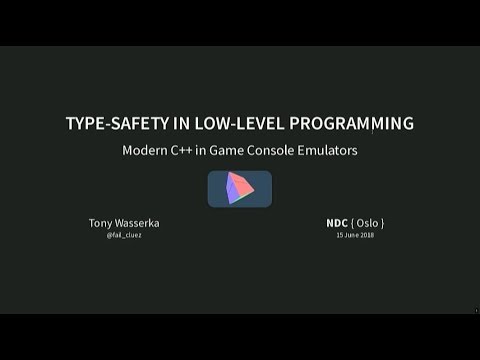Description:
Explore type-safety in low-level programming through the lens of modern C++ in game console emulators. Delve into the challenges of balancing code optimization for stable frame rates with complex hardware emulation logic. Learn how to leverage compile-time programming techniques to revitalize the type system when working with untyped data, focusing on the Nintendo 3DS kernel interface. Discover the power of declarative interfaces in documenting hardware expressively while ensuring consistent implementation without compromising maintainability or performance. Examine concrete examples including the system call interface, inter-process communication, and data serialization. Gain insights into process communication, client-server architecture, and file reading implementations. Investigate active processes, recursion techniques, code generation, and constant expressions. Analyze decoding and encoding methods, collaborative interfaces, and template structures. Understand the importance of decoupling in emulator development and how modern C++ can address the unique challenges of console emulation.
Read more

Type-Safety in Low-Level Programming - Modern C++ in Game Console Emulators
Add to list
#Conference Talks
#NDC Conferences
#Computer Science
#Operating Systems
#Inter-Process Communication
#Programming
#Programming Languages
#Type Safety
#Low-level Programming